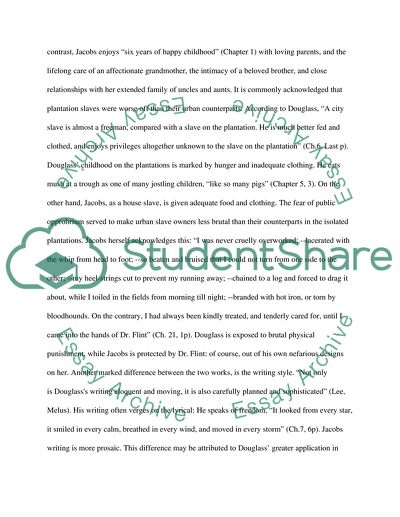Cite this document
(“Frederick Douglas and Harriet Ann Jacobs: A Difference in Perspective Book Report/Review”, n.d.)
Frederick Douglas and Harriet Ann Jacobs: A Difference in Perspective Book Report/Review. Retrieved from https://studentshare.org/literature/1578197-survey-of-american-literature-comparison-paper
Frederick Douglas and Harriet Ann Jacobs: A Difference in Perspective Book Report/Review. Retrieved from https://studentshare.org/literature/1578197-survey-of-american-literature-comparison-paper
(Frederick Douglas and Harriet Ann Jacobs: A Difference in Perspective Book Report/Review)
Frederick Douglas and Harriet Ann Jacobs: A Difference in Perspective Book Report/Review. https://studentshare.org/literature/1578197-survey-of-american-literature-comparison-paper.
Frederick Douglas and Harriet Ann Jacobs: A Difference in Perspective Book Report/Review. https://studentshare.org/literature/1578197-survey-of-american-literature-comparison-paper.
“Frederick Douglas and Harriet Ann Jacobs: A Difference in Perspective Book Report/Review”, n.d. https://studentshare.org/literature/1578197-survey-of-american-literature-comparison-paper.


